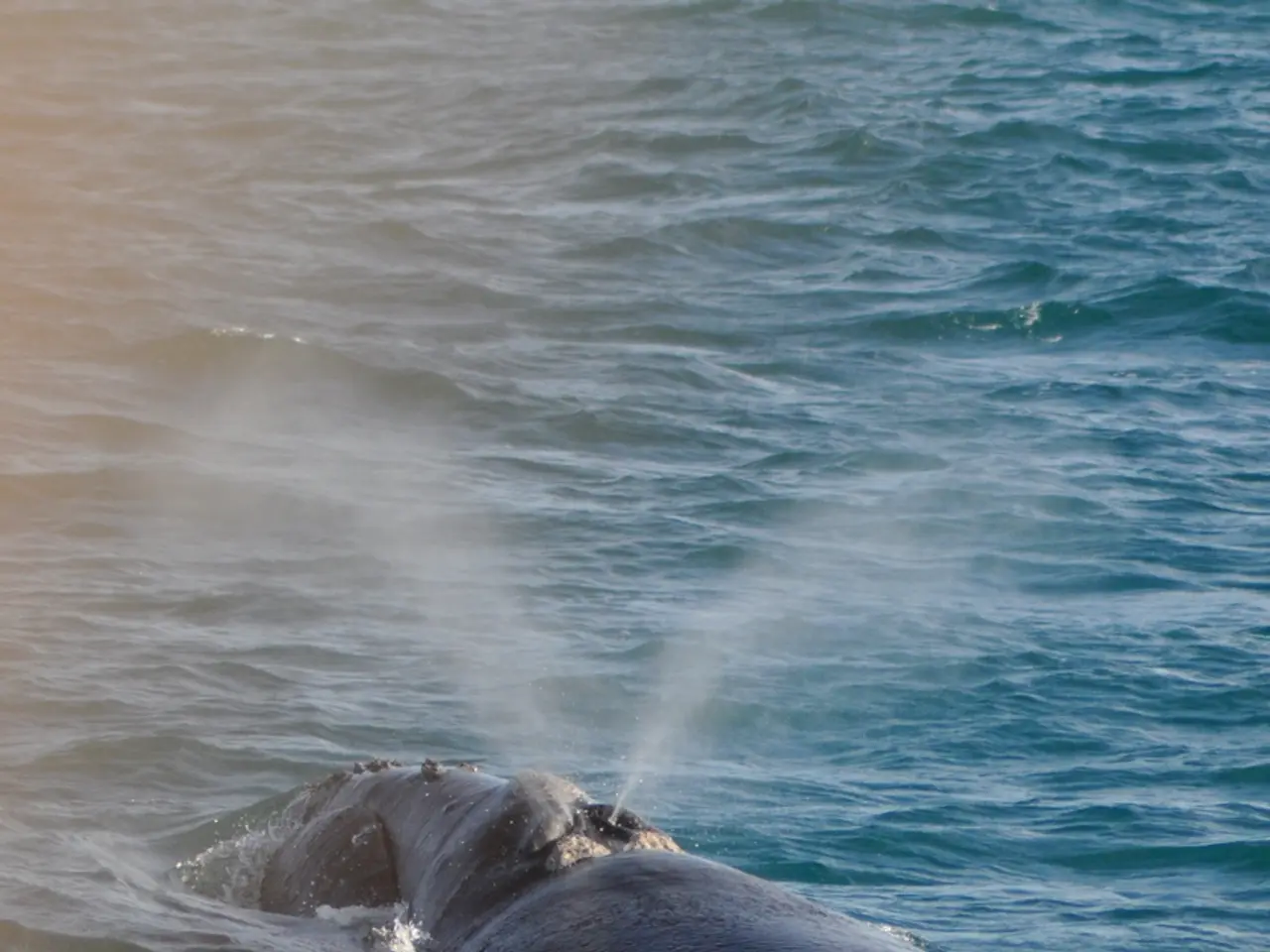Airbus initiates research on greenhouse gas emissions from aircraft, collaborating with Canadian aerospace industries
The Airbus CRYSTAL project, a significant initiative aimed at measuring and analyzing non-CO2 emissions from various jet fuels, including sustainable aviation fuel (SAF), has been launched in Canada. This project is supported by government programmes such as Canada's Initiative for Sustainable Aviation Technology (INSAT) and Consortium for Research and Innovation in Aerospace in Québec (CRIAQ).
Airbus, with its commitment to reducing Non-CO2 emissions, is collaborating with Canadian aerospace academic and research organizations to evaluate the environmental footprint of sustainable aviation fuels beyond their carbon dioxide savings. The focus is on understanding the impact of these emissions on contrail formation and properties, which are ice clouds that form from aircraft exhaust and contribute to climate effects beyond CO2 emissions.
The CRYSTAL project includes expertise from key Canadian players such as Polytechnique Montréal, École de technologie supérieure (ÉTS) and FSM Management Group. Ground tests are planned to commence as of Q3 2025, followed by flight tests in 2027. These tests will be conducted using the A220 flight test aircraft, the only Airbus commercial aircraft programme to be piloted outside of Europe, at Airbus' Mirabel site in Canada, the A220 Programme headquarters.
The A220 flight test aircraft will be used to measure emissions on-wing and in-flight emissions and contrails at various altitudes. The data generated will be utilized by the scientific community to improve contrail models and identify engine technology and fuels that could minimize the climate impact from contrails.
This emphasis on non-CO2 effects like contrails marks an important step in addressing aviation's full climate impact beyond just carbon dioxide. By understanding the impact of different fuels on contrail formation and properties, the project aims to provide robust data and insights on non-CO2 emissions from different jet fuels, helping improve climate impact assessments and informing sustainable fuel development and usage strategies.
Airbus' CRYSTAL project is part of broader research efforts to evaluate the environmental footprint of sustainable aviation fuels. The project is similar to previous projects VOLCAN and ECLIF3, conducted by Airbus in Europe, using aircraft from the A350 Families.
The CRYSTAL project is one of the key projects under Espace Aero - the first official Quebec aerospace innovation zone project this year. The project is expected to contribute significantly to the Canadian economy, with Airbus employing over 4,500 employees across ten sites and offices in Canada, contributing to approximately 23,000 indirect jobs and generating more than C$ 2 billion in revenues annually for over 850 Canadian companies.
The YMX International Aerocity of Mirabel airport, managed by ADM (Aéroports de Montréal), will support this collaboration. This project underscores Airbus' continued efforts to research non-CO2 emissions and contribute to the aviation industry's efforts to understand the formation of non-CO2 emissions and their effects.
- The CRYSTAL project, led by Airbus, will apply technology from the A220 flight test aircraft to analyze non-CO2 emissions, focusing on contrail formation and properties, as part of their initiative to reduce aviation's overall climate impact.
- The CRYSTAL project, falls under the category of general-news, as it contributes to broad research efforts aimed at evaluating the environmental footprint of sustainable aviation fuels and understanding non-CO2 emissions, which could lead to improvements in fuel development strategies and climate impact assessments.




